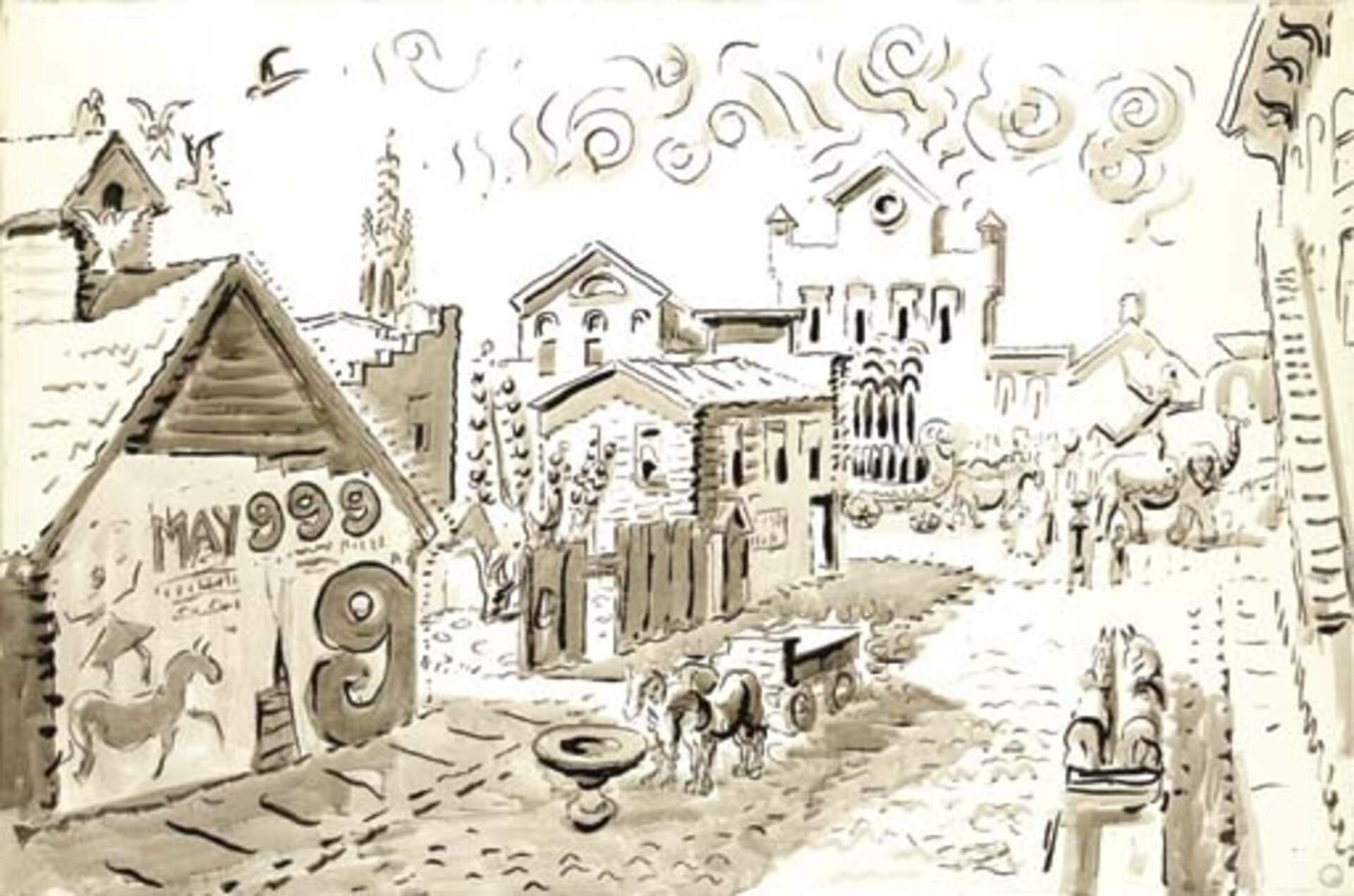Charles E. Burchfield (1893-1967)Circus Parade
May 9, 1917-December 14, 1961
graphite, ink, ink wash and watercolor on paper
37 x 55½ inches
Private Collection, Image courtesy of the Burchfield Penney Archives
Calliope music cheerfully announced the circus parade’s arrival, filling the air with excitement. Children and adults alike ran to the streets to see a troupe of performers marching with exotic animals in brightly painted carriages. In 1961, as Burchfield planned a large painting of his 1917 impressions, he ordered a record “called ‘Crazy Calliope’ (which one reviewer said should be pronounced “Cally-ope” as we used to at the turn of the century) played by Margie Meinert of a Wurlitzer Steam Calliope built in 1895 – using the popular songs of the first two decades of our century –” The music made him feel like a child again. “While Bertha was preparing lunch, I played ‘The Tiger Rag’ & ‘Camptown Races’ Incredible music! and what boyhood memories it evoked!”
Charles E. Burchfield, Journals, Vol. 60, December 14, 1961, p. 153.
Dec. 14, (Thurs.) –
About 2 or 3 inches of snow – alternate sunlight and clouds, a brisk wind from the S.W. a delightful early winter day.
Mid A.M. – Sally called – she has been Christmas shopping every morning this week – Everything was OK she said.
Working in the studio some on drawings. Made a few corrections on the “May 9, 1917” drawing (Circus Parade) but did not mount it. Worked on the “November” studies I had mounted.
After lunch we went food shopping – then home.
Evening Belle called to say Joe had had a slight heart attack, but was again “up and around.”
-----
The recording of Virgil Thomson’s “Plow that Broke the Plains” and “The River” arrived about noon. I played it during our lunch, and again at bed-time — We liked it on the first hearing; but it is only on the second hearing that its real beauty begins to show. At first one notices the use of hymns and folks [sic] songs and fails to grasp the real meat of the music.
